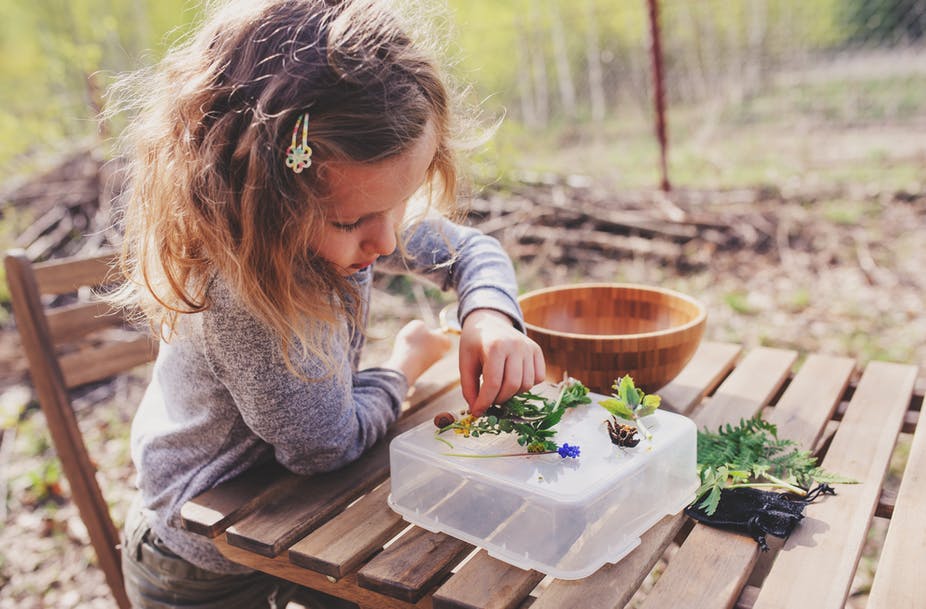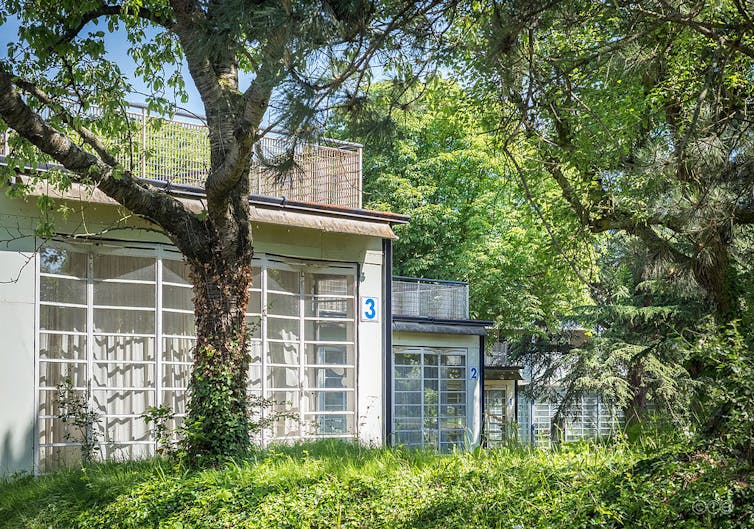Nature at school: is it time to hold classes outdoors?
As soon as the lockdown easing measures were announced, the idea of a school where classes would be held outdoors began to take shape. Several opinion pieces called for schools to open up to society and hold classes outside. With the implementation of strict health protocols, this outdoor school became both a "healthy and beneficial solution" and a symbol of regained freedom.
Sylvain Wagnon, University of Montpellier

This movement toward openness to nature is not new. It is an old and international educational trend that is currently experiencing a real resurgence of interest. So, is the time right to move from theory to practice, from experimentation to widespread implementation, and thus establish a new relationship between human beings and their environment in education?
Nature and well-being
The benefits of connecting children with nature are numerous and recognized by multiple studies. The past few months have shown us how vital a connection with nature is. Is this simply a temporary initiative to mark the end of lockdown, or is it, as Moina Fauchier-Delavigne and Mathieu Chereau have written, the emergence of a green revolution in education?
Outdoor activities are important for children's health and well-being. Playing, observing, running, singing, listening, and smelling in nature are all ways to improve their independence and confidence. This creates a different relationship with themselves and their environment. The presence of nature influences our behavior and emotions.
From an educational perspective, its psychological benefits are reflected in behavior but also in cognitive development by taking into account the needs and interests of the child.
Still in their infancy in France, scientific studies on this topic are numerous in Anglo-Saxon countries. Katherine Mycock's work shows the importance of learning in nature for child development in Great Britain. In France, interest in this alternative form of education has been growing for the past decade.
Practical knowledge
We can talk about nature-based education, the aim being to reconnect children with the environment. Discovering natural elements is a way of moving away from exclusively book-based learning and extrapolating knowledge to engage with the environment through the senses, the body, and the mind.
Outdoor education aims to develop practical exploration, to raise awareness of nature among young children. Children play, climb trees, and build things. These are experiences that already exist in summer camps or scouting, but here they take on an educational character. Knowledge not only leads to exploration and social interaction, but also to the acquisition of multiple skills in math, vocabulary, and scientific, geographical, historical, or artistic understanding.
"Luxembourg: a preschool has been set up in a forest" (Télé Matin, 2017).
Today, these outdoor activities are also seen as important for well-being in the face of a sedentary lifestyle that increases health problems such as hyperactivity, anxiety, obesity, and stress.
Several principles unite the schools that make this choice:
- the concept of pleasure generated by nature in children
- the desire for a comprehensive education that takes into account the different facets of a personality
- the idea of developing a relationship with one's environment.
Historical precedents
Since Jean-Jacques Rousseau and Johann Heinrich Pestalozzi, educational reformers have emphasized the importance of nature in the harmonious development of children. Early20th-century progressive educators such as Freinet and Decroly theorized this school of life, where it is important to leave the classroom to observe, experiment, and understand.
At the beginning ofthe 20th century, outdoor schools represented a European educational movement that sought to open up school architecture to the outside world and develop teaching methods linked to nature. The current exhibition on the Suresnes outdoor school highlights the architectural and educational innovations of this type of school.

Thomas Brenac/Wikimedia, CC BY-SA
Forest schools and outdoor education schools now form a structured global network. As early as the 1920s, schools in the United States were established with nature as their raison d'être. Forest schools are experiencing steady growth in Europe, mainly in Germanic and Scandinavian countries. In Denmark, the idea of forest schools has become an integral part of the curriculum for preschool children (under the age of seven).
Over the past decade, a national program has been implemented in Great Britain, and the country now has more than 140 forestry schools.
In France, nature schools are still developing slowly. The "nature-based education" movement is attempting to structure educational experiences that are based on nature. Since 2018, several schools have joined this movement.
Eco-friendly schools
Beyond introducing students to sustainable development, environmental awareness, and respect for the environment, which are now part of school curricula, eco-citizen schools involve students in concrete actions, such as removing asphalt and replanting vegetation in schoolyards. For its part, the eco-school network represents several thousand schools that, since 2005, have been working to develop specific skills in sustainable development and education.
Presentation of the eco-school network.
The challenge is to move beyond simply talking about connecting with nature and to implement interdisciplinary outdoor learning practices in schools. Experiments are being conducted within the public education system. Schools in the Doubs region are developing "open-air" practices, and stakeholders in the field are campaigning for these practices.
Bringing children closer to nature and the environment means approaching education in a profoundly different way. The health situation, concerns about the future, and the need to take action for ecological transition provide a favorable context and opportunities for "outdoor schooling." Will the various stakeholders in education—schools, parents, and teachers—recognize this for the sake of children's future and undertake a genuine educational reform based on harmony between human beings and their environment?![]()
Sylvain Wagnon, Professor of Education Sciences, Faculty of Education, University of Montpellier
This article is republished from The Conversation under a Creative Commons license. Readthe original article.